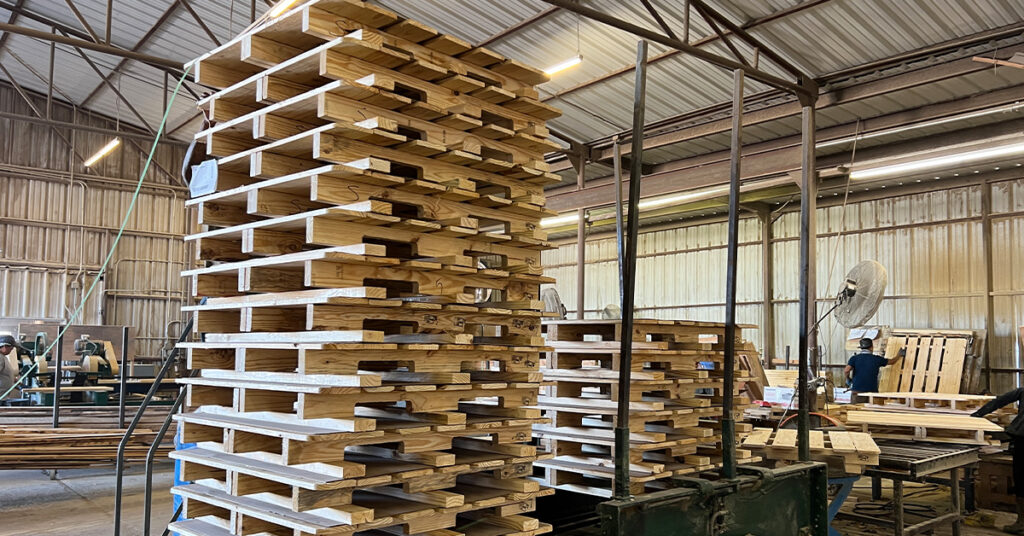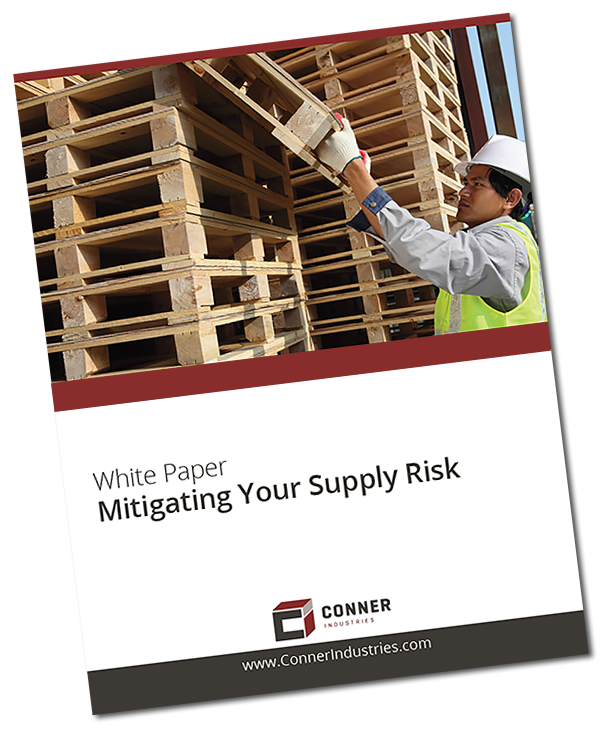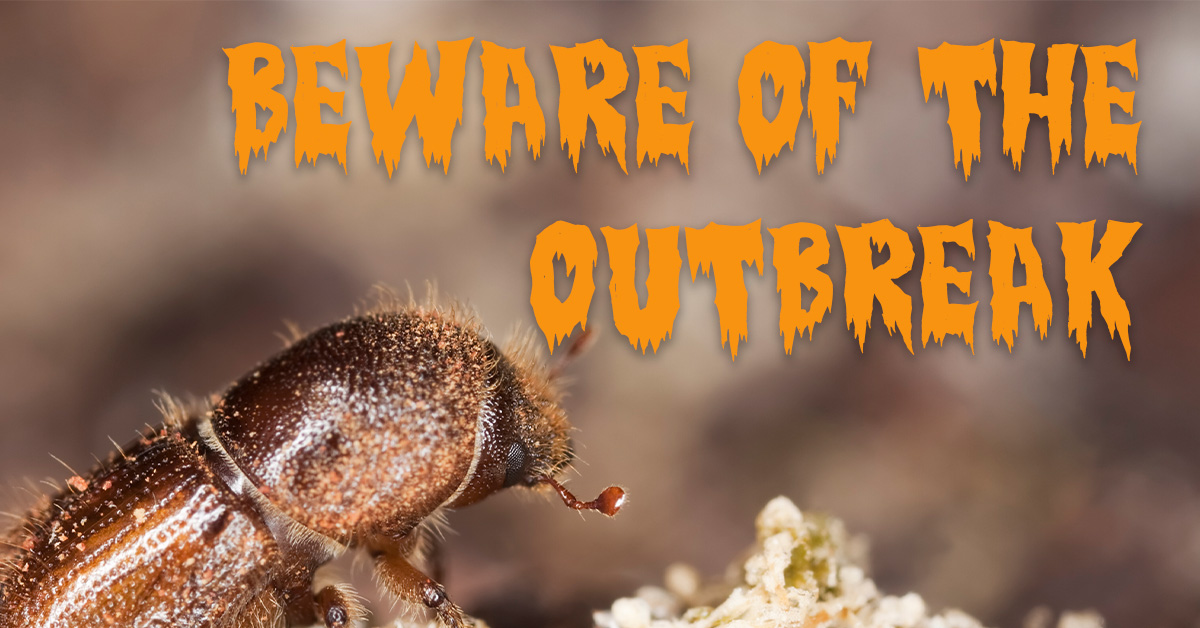
How Recent Southern Pine Beetle Outbreaks Affect Industrial Packaging
The southern pine beetle is one of the most destructive pests to pine forests in the southeastern United States. Known for its aggressive infestation tactics, this tiny insect has the potential to wreak havoc not only on forest ecosystems but also on industries that rely on pine wood for manufacturing, including industrial packaging. These insects can cause tens to hundreds of millions of dollars in economic losses annually in the United States.
As the frequency and severity of southern pine beetle outbreaks rise, the repercussions for the packaging industry are becoming more significant. This year, Alabama has been experiencing one of the worst southern pine beetle outbreaks of the last 20 years. The Alabama Forest Commission has identified 5,000 trouble spots, with an estimated 191 trees killed at each spot. In this article we will dive into more information about southern pine beetles and mitigation tactics for the current and future outbreaks.
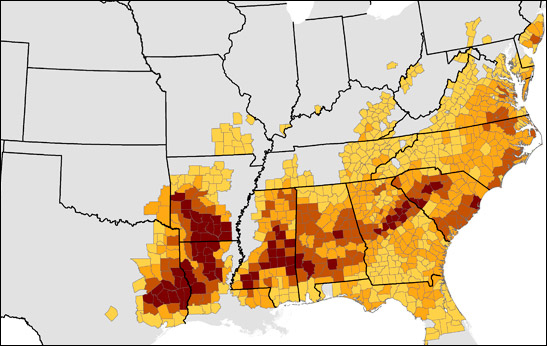
Southern Pine Beetle County Hazard Rating Map
Source: U.S. Department of Agriculture
Understanding the Southern Pine Beetle
There are a few different types of pine bark beetles that can affect pine trees. The southern pine beetles are small insects, measuring about 2 to 4 millimeters in length and have a more rounded body. They may be small, but they have a disastrous impact on pine forests. They are known as the most destructive because they can kill large numbers of healthy trees in a short amount of time.
Souther pine beetles infest and kill trees by burrowing under the bark and laying eggs. As the larvae develops, they feed on the tree’s inner bark, which disrupts the flow of nutrients, ultimately causing the tree to die.
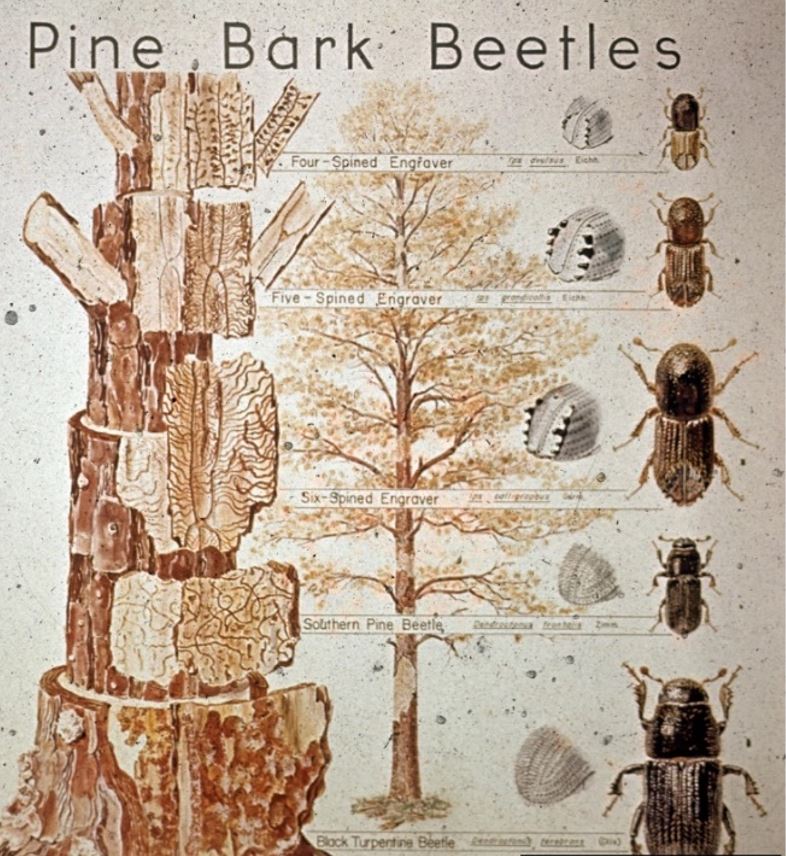
Source: Georgia Forestry Commission
Outbreaks can be triggered by a few different factors including drought, weakened trees, saturated soils, storm damage, or other climate changes. It is important to know the signs and catch them early to prevent widespread damage.
Pine Wood and the Industrial Packaging Industry
The industrial packaging sector relies heavily on softwood, particularly pine, due to its versatility, lightweight nature, and affordability. Pine wood is a preferred material for pallets, crates, and other forms of packaging due to its strength-to-weight ratio, which makes it suitable for transporting heavy goods while remaining cost-effective. Pine is also an abundant resource in the southern United States, where it is grown and harvested specifically for these uses.
However, as southern pine beetle infestations spread, the availability of healthy pine timber is under threat. Large-scale tree death can reduce the supply of wood, drive up prices and force manufacturers to seek alternative materials. Additionally, the presence of southern pine beetle infested wood in industrial packaging could pose a risk of spreading the beetle to new regions, making the problem worse.
Potential Economic and Ecological Impacts
The financial toll of southern pine beetle outbreaks on the forestry and packaging industries is substantial. The U.S. Forest Service estimates that southern pine beetle outbreaks cause hundreds of millions of dollars in timber losses annually. For industrial packaging companies, these losses can translate into higher raw material costs, supply chain disruptions, and potential shortages.
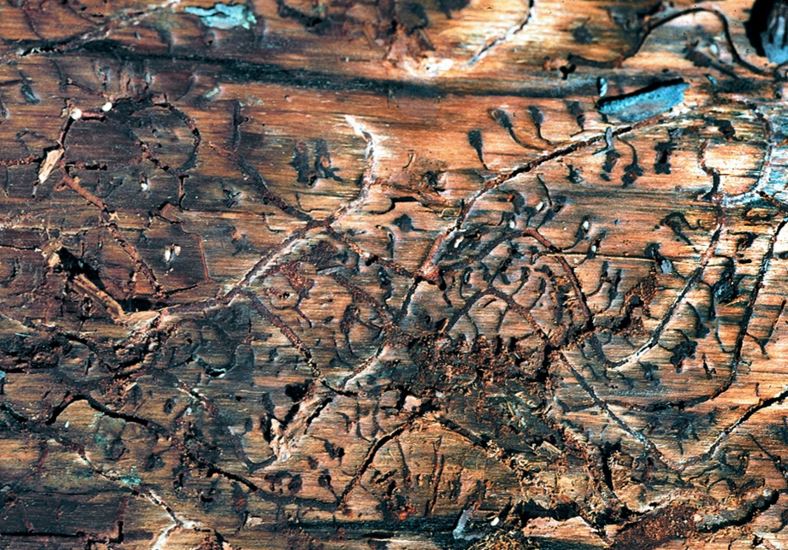
Source: Georgia Forestry Commission
Beyond the economic damage, southern pine beetle infestations contribute to ecological imbalance. The loss of large swaths of pine forest can affect biodiversity, alter habitats for wildlife, and disrupt the carbon storage potential of forests. In turn, the decline in forest health further limits the supply of sustainable packaging materials.
Mitigation and Looking Towards the Future
Fighting against the southern pine beetle outbreaks requires a multifaceted approach. Forestry management techniques, such as thinning forests and diseased trees as quickly as possible, can help reduce the spread of damage. Additionally, chemical control with insecticide sprays may be used by forest commissions.
For the industrial packaging sector, companies may need to diversify their raw material sources. This is why it is important to use a supplier that has redundancies in place when an outbreak may affect one region of the country.
As storm seasons continue to intensify and exacerbate beetle outbreaks, industries dependent on natural resources, including packaging, will need to stay vigilant and adaptive. The southern pine beetle serves as a distinct reminder of the interconnectedness between ecological health and industrial supply chains. Proactive measures to keep forest safe and secure sustainable material sources will be important to mitigating the long-term impacts of this threat.



![[PRESS RELEASE] Conner Industries Expands Integrated Packaging Division with Acquisition of Kirkland Sales Inc.](https://connerpackaging.b-cdn.net/wp-content/uploads/2024/05/Foam-Page-Featured-500x383.jpg)

